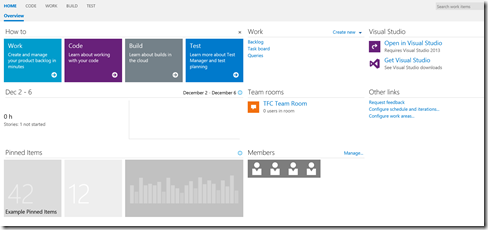January 23rd 2014 saw the launch of ALM days SA in Cape Town.

This event was organised and sponsored by Team Foundation Consulting, South Africa’s only consultancy focussed solely on ALM, TFS and Visual Studio.
Attendees came to learn about updates to Microsoft’s Application Lifecycle Management offerings which enable software development teams to be more productive and to collaborate more effectively.
The event aimed to provide insight, advice, strategies and techniques to improve quality and ensure that the final application meets the needs and expectations of users
A HUGE thank you to all who attended and participated in the first ALM days!!
We had a lively crowd of about 40 people, all of whom chose to spend their day learning something new.

Some of the positive feedback from those who attended…
“Broad coverage of topics, well done”
“Keynote was excellent, Agile was interesting, looking at new tools & features was great…”
“Great presentations, very informative. Awesome keynote…”
“…Lunch awesome & venue great. Thank you for taking the initiative of organising this day. Much appreciated.”
“Would be nice to see this every year.”
“Nice mix of topics – technical & theoretical.”
“Good speakers, good content, good location, learned a lot.”
“Hope you host TechDays 14.”
“Great food!”
Thank you to all our SPEAKERS who helped to make this event possible!
Roderick Lim Banda, our Keynote speaker, set the tone for the day and got everyone thinking about the future of IT and the people who are involved in the industry.
”Awesome keynote…” “Enjoyed Roderick’s views on CPT IT industry.” “Keynote was excellent…”
Cara Turner gave us some insight into a real world business situation where Agile proved invaluable.
Daniel van Wyk showed us how to incorporate SQL in the development process.
Dawie Snyman showed us a few of the cool features in TFS 2013.
Niel Zeeman provided insight on how to incorporate Quality Management & Enablement in day-to-day processes. He also showed us what is possible when it comes to Continuous Deployment as a key concept in Velocity Culture and how it all comes together.
A special thank you to Ahmed & Michelle from Microsoft SA who kindly organised the Visual Studio 2013 info sheets as well as the 2 books and Visual Studio USB’s which were given out to participants
At Team Foundation Consulting, we saw the need to have
an ALM event where developers and members of the IT community could share experiences, learn new concepts, have access to experts and engage with likeminded individuals.
Judging from the feedback from those who attended…we were right!
We are proud to have launched ALM days, and we look forward to making the next one even better!
 www.alm-days.co.za
www.alm-days.co.za
We are currently in the process of gathering slides and will make them available on the ALM days site. Keep an eye out for updates either on http://www.alm-days.co.za , or on this blog.












